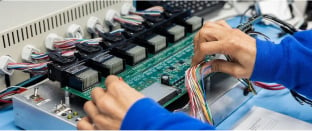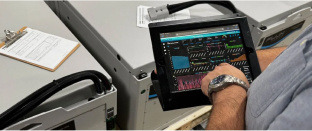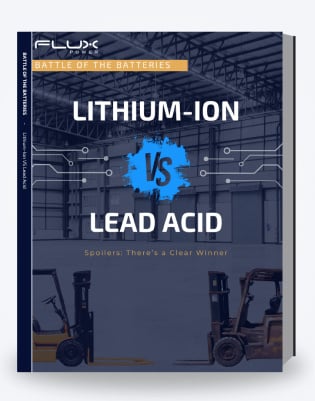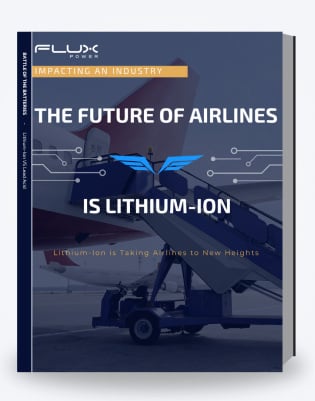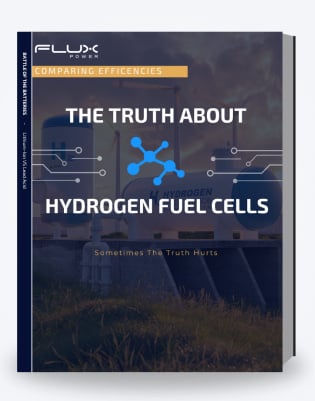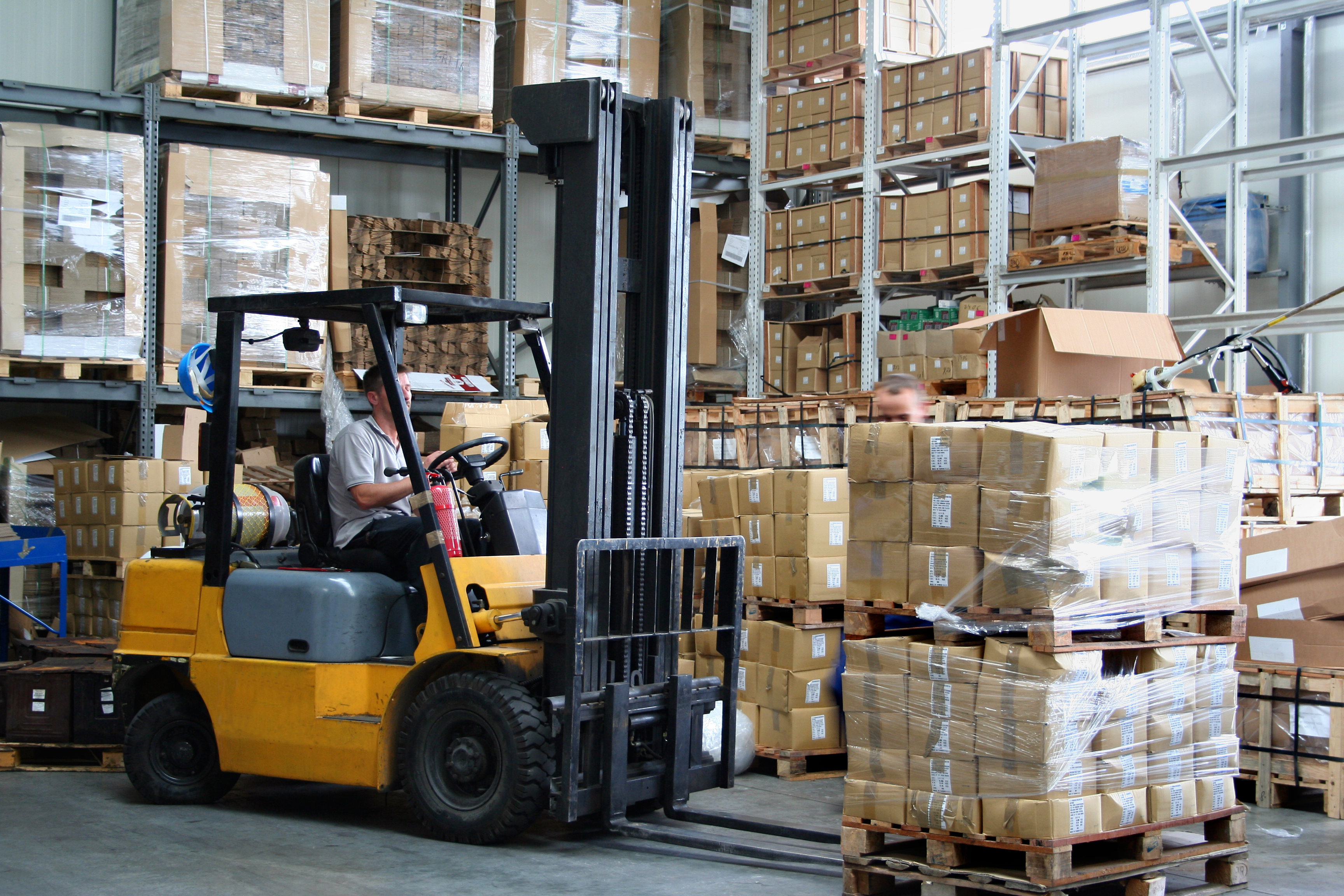While many companies have temporarily shut down in an effort to stop the spread of COVID-19, some have seen an increase in business as the need for essential supplies has increased.
Companies like Amazon have seen a surge in orders from Americans remaining at home, and in response have hired 100,000 workers to help with fulfillment at the company’s warehouses. Other companies like Kroger, Walmart and Lowes have hired thousands to work at distribution centers.
Rather than purchase new forklifts to keep up with the increased warehouse demands, many companies are choosing to rent forklifts as a more economical choice to expand their fleets to temporarily meet their needs.
There is one consideration that can help ensure that the company renting it enjoys a hassle-free experience...the type of battery used to power the forklift.
While both lithium-ion and lead acid batteries provide a power source, lithium-ion batteries offer far more benefits to both the rental company and the business renting the forklift.
Benefits For The Business Renting The Forklift
Renting forklifts powered by lithium-ion batteries offers significant advantages to companies struggling to keep up with the current demand for their products or services.
No Water Maintenance
Lithium-ion batteries do not require water maintenance. If customers rent forklifts powered by lead acid batteries for just one month, they 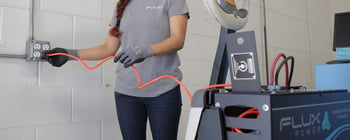 will have to deal with performing water maintenance during that period of time.
will have to deal with performing water maintenance during that period of time.
During the water maintenance process, workers must check electrolyte levels in the lead acid battery and refill the battery with distilled or deionized water to prevent deterioration. This process of refilling the battery with water comes with risks. If a spill occurs, highly-toxic sulfuric acid inside the battery can splash onto a worker’s body and cause serious harm.
For many companies renting forklifts on a short-term basis, this extra maintenance and risk for harm isn’t worth the hassle.
Longer Run Times
For companies that are working around the clock to get food and other products out to stores and consumers, how long a battery runs is critical to maintaining operational efficiency.
Companies that have access to lithium-ion batteries for their forklifts can expect average run times of about 7.2 hours before requiring a charge. Lithium-ion batteries can also be safely discharged down to 20% capacity.
Lead acid batteries, on the other hand, require charging after about 5.4 hours of use and can only be safely discharged down to about 30% capacity.
The longer a battery is in service, the more cost-efficient it is to an operation. And, swapping batteries after just 5.4 hours can lead to costly downtime for employees who must then remove the batteries from equipment and replace them with charged batteries so equipment can go back into service.
This uses precious productivity at a time when every minute matters.
Shorter Charging Times
Lithium-ion batteries take just 1 to 2 hours to charge. They can be opportunity charged in between shifts or while employees are on break.
As crews continue to work around the clock to fulfill orders and get products out, this is critical since only one lithium-ion battery is typically needed per piece of equipment, regardless of the number of shifts.
Lead acid batteries require 8 hours to charge and another 8 hours to cool down. So, each lead acid battery actually requires 16 hours before it is ready to go back into service. This means that one battery will be required for each shift per piece of equipment.
Benefits For The Rental Company
A rental company may see significant benefits when choosing to power its fleet of rentable forklifts with lithium-ion batteries.
Peace Of Mind
 Renting a forklift with a battery that requires the least amount of maintenance for the customer is almost always the safer and less risky choice.
Renting a forklift with a battery that requires the least amount of maintenance for the customer is almost always the safer and less risky choice.
As mentioned above, lead acid batteries require an extensive amount of routine maintenance. If a company renting the forklifts does not have training or safety protocols in place to deal specifically with maintaining lead acid batteries, this can be problematic for the company that owns the forklifts.
When proper maintenance procedures are not performed, damage can occur to the battery. Forklift rental companies may have to deal with the ramifications of this when damaged batteries are returned to their possession.
In other words, rental companies can save themselves, and by extension, their customers, significant hassles by selecting a lithium-ion battery that does not require the frequent maintenance that a lead acid battery does.
Longer Lifespan
Although the demand for forklifts is good news for companies that rent them, it is important to make sure you are getting the most out of your investment.
One way to ensure this is to look at the average lifespan of the battery so you can make sure the battery stays in service as long as possible. A battery with a longer lifespan generally makes it a more valuable investment.
When properly maintained, lithium-ion batteries have an average lifespan of between 2,000 and 3,000 cycles. The average lifespan of a lead acid battery, on the other hand, is just 1,000 to 1,500 cycles.
A Long-Term System In Place
The COVID-19 pandemic will pass, and when it does, offering forklifts that are powered with lithium-ion batteries will provide the same benefits that are outlined above to companies that have seasonal needs or have other reasons in which purchasing a forklift doesn’t make financial sense.
Our article, Lithium Battery Price: Good Investment?, further explores the benefits lithium-ion batteries provide and why in the long-run, they are a must more sound investment for a forklift rental company than lead acid batteries.

